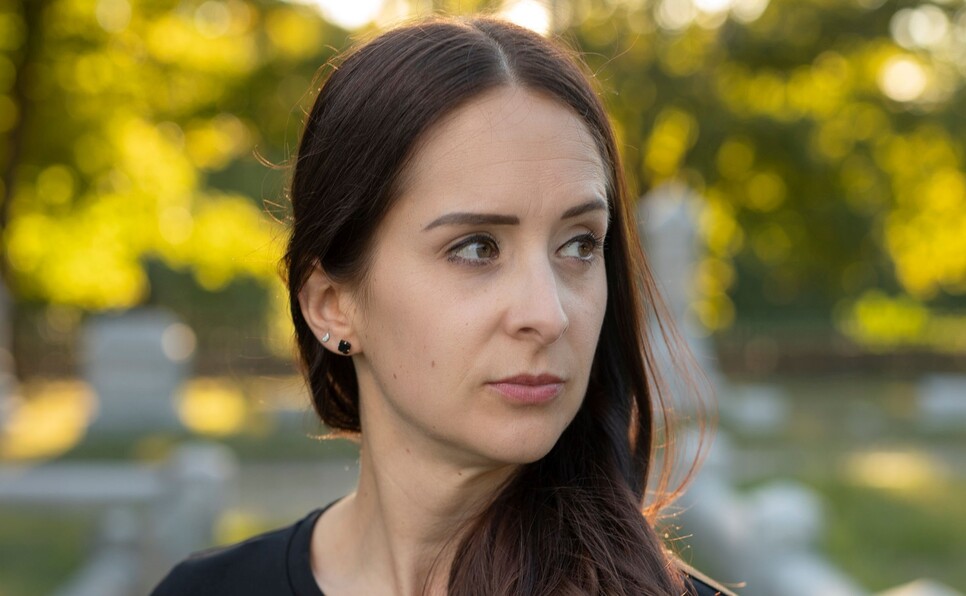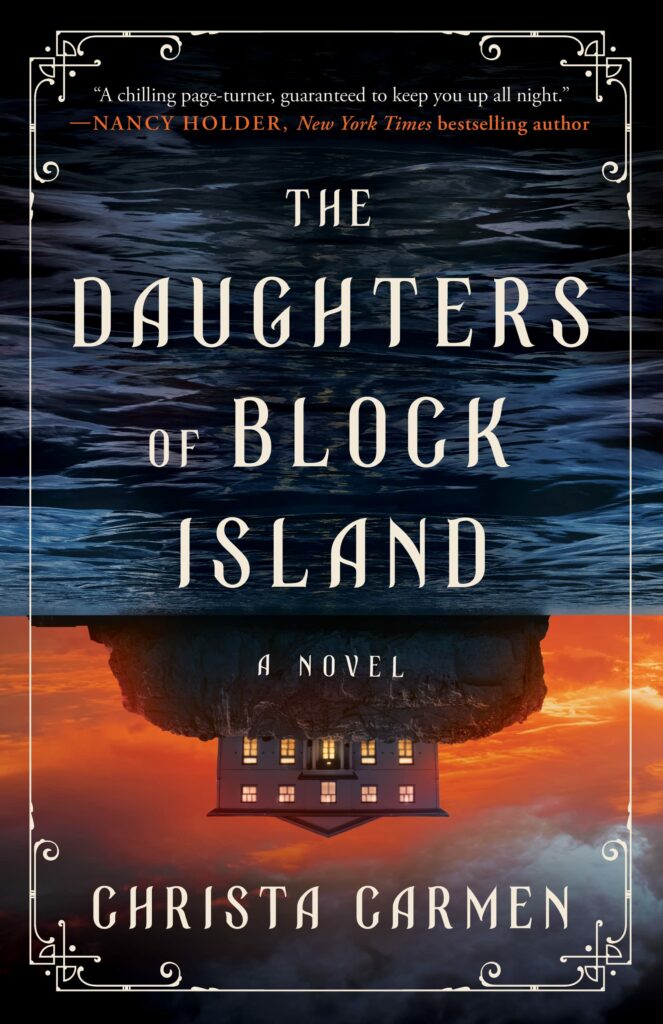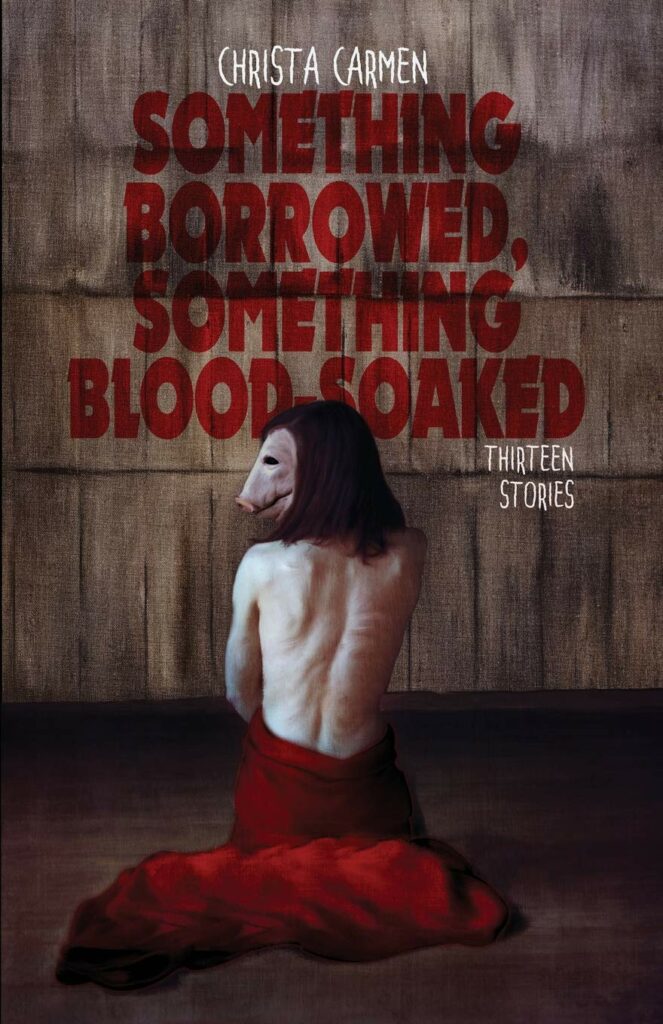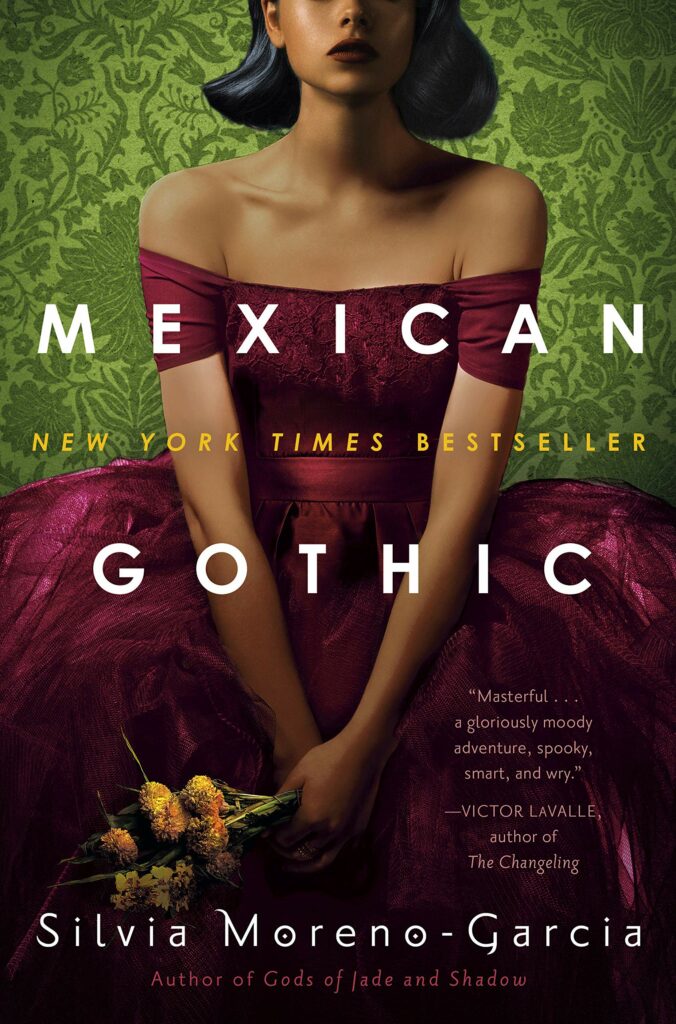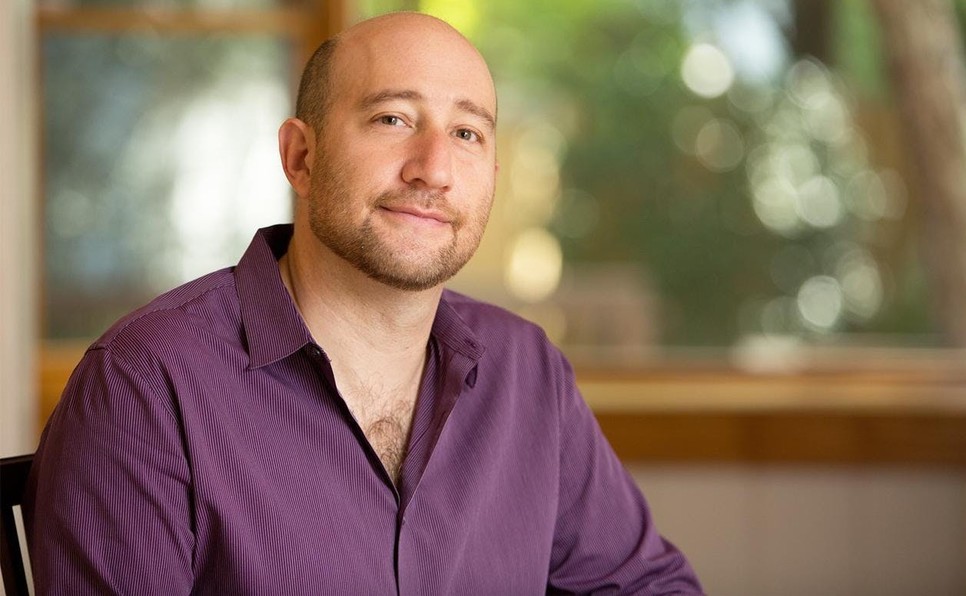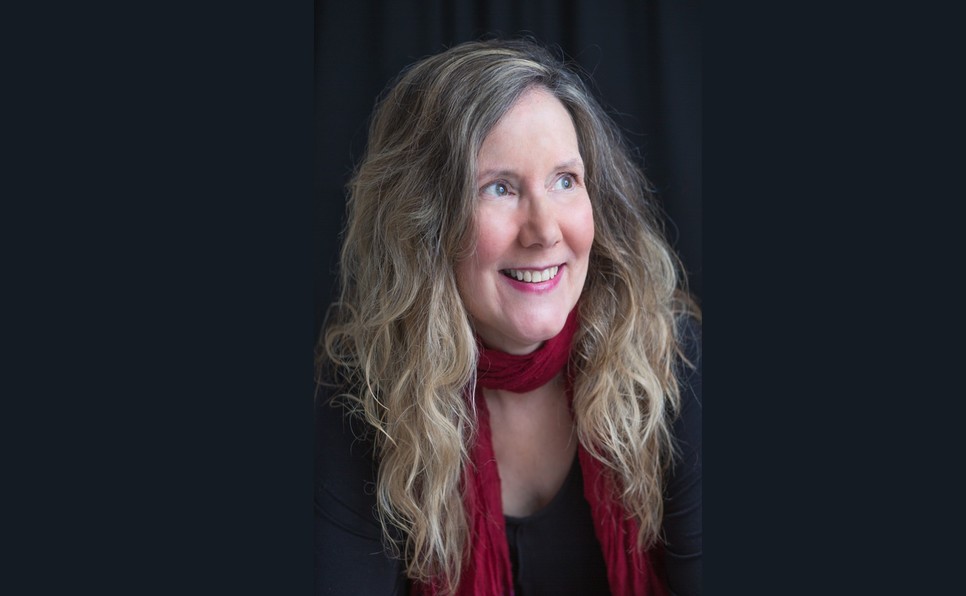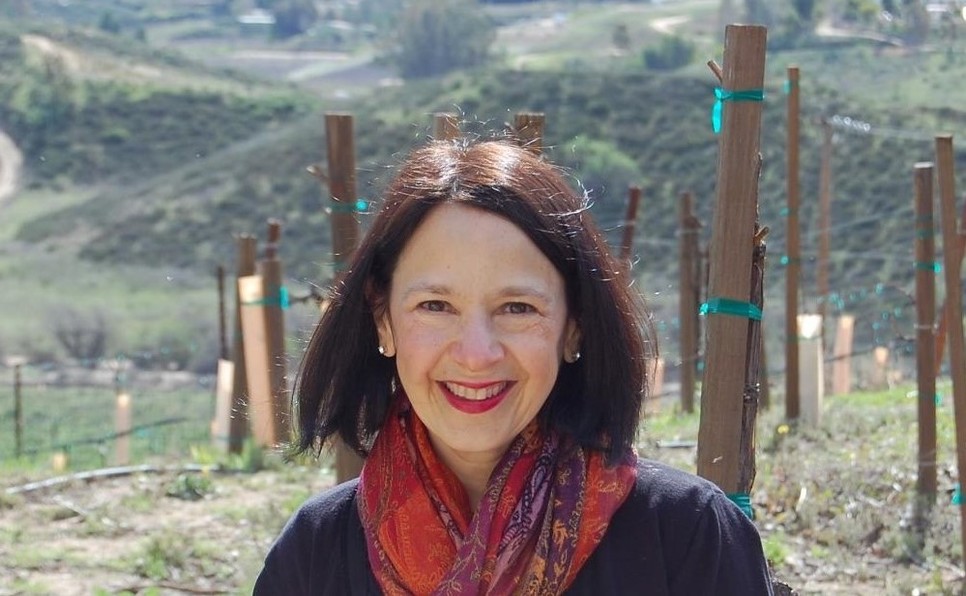Author Christa Carmen and I first bonded over our love of writing the uncanny—and why, as “genre” writers, it can be tricky to find your place on an MFA program. Christa was bucketed into popular fiction, while I was in plain old fiction. Yet we weren’t 100% sure that our dark, twisted tales could be classified as such. Since graduating, we’ve supported each other by providing updates on our author careers, so it’s been an absolute joy to see Christa’s work win award after award, and for her stories to get picked up by anthologies, presses, and for “Through the Looking Glass and Straight into Hell,” from Orphans of Bliss: Tales of Addiction Horror (Wicked Run Press), receive a coveted nomination for the 2022 Bram Stoker Award® for Superior Achievement in Long Fiction. With one independently-published book under her belt, and another traditionally published coming soon, Christa is a prolific horror writer whose words will chill you to your bones. It gives me great joy to publish her interview here on Aspiring Author.
How did you get into writing?
I have been writing in one capacity or another for as long as I can remember—painstakingly bound and hilariously illustrated short stories as a child, emo journal entries as an adolescent and when I was in treatment for substance abuse, impassioned nonfiction essays and decidedly weak attempts at memoir—but I didn’t start writing fiction until about 2014. I’ve always loved the gothic, so my first completed project was a gothic horror novel set in the Hundred Mile Wilderness in Monson, Maine… very Stephen King of me, I know. After that, I wrote predominately short stories for several years, and then returned to writing novels at the start of 2019.
How did you find your literary agent?
The first time I queried agents was back in 2014 with the gothic novel set in Maine I mentioned above. I kept an old school Excel spreadsheet, found a list of reputable literary agencies on Writer’s Digest , and went agency by agency, identifying the agent at each that was the best fit for my work. The manuscript garnered a modest amount of interest, including one request for a rewrite to cut about 15,000 words, but ultimately, I did not end up with any offers for representation. I took this as a sign that the novel wasn’t where it needed to be and trunked it. Then, I went back to work. I wrote two additional novels (that were probably worse than the first) before beginning my MFA at Stonecoast, where I focused primarily on figuring out what kind of novel writer I was. By the end of the two-year program, I had a new manuscript that I was very pleased with, and I returned to my old spreadsheet to see if any of the same agents were looking for new clients (after checking that their wish lists and guidelines remained the same). I remembered Jill Marr’s profile the second I saw it on the Sandra Dijkstra Literary Agency’s website. Jill’s bubbly demeanor, keen insight, experience within the field, and enthusiasm for her authors and projects seemed like a great fit for me and my manuscript, and I’m happy to say that I was right. She responded with an enthusiastic, “This is SO RIGHT UP MY ALLEY!” and a request for the full manuscript, and one week later, we were signing the agency agreement.
Describe your relationship with your literary agent
Jill and I work extremely well together. She’s hands-off when it comes to ideas; she lets me come to her with my plan for the next project, offers support and encouragement, and asks that I send her the completed manuscript once it’s been read and commented on by my beta readers. After that, she offers her thoughts and suggestions, I do another round of edits, and we repeat ad nauseam until we’re both happy enough to move on to considering publishers for submission.
Describe your publishing journey
The novel with which I procured my literary agent is not the novel that will be published in October 2023 by Thomas & Mercer. I still love that first novel so very much, so I was disappointed—at the time—that it wasn’t picked up. I won’t go into what it’s about here, since my agent and I are optimistic that it hasn’t succumbed to the status of “trunked” just yet, but suffice to say that some of the pain and distress I felt at not placing that novel is what motivated me to write the novel we did end up selling, and I’m thrilled The Daughters of Block Island is going to be my debut.
What it’s really like going out on submission?
Long. And there’s always something going on from a calendar standpoint that makes it longer. If you go out on submission towards the end of the year, you have to contend with the holidays. If you go out on submission at the start of a new year, you have to contend with editors being inundated with new projects. If you go out on submission in the summer, you have to contend with out of offices for people on extended vacations. It’s a waiting game, so I found it best to distract myself by working on something new, writing short stories for anthology submissions, and just generally trying to distance myself from the fact that something I cared so very much about was completely out of my hands.
Describe your relationship with your editor
Gracie Doyle acquired my novel for Thomas & Mercer, and she and I worked together on the first few rounds of developmental edits. She is such a lovely, intelligent person, who not only whipped the manuscript into shape almost instantly, but also has been such a calm, driving force behind all the additional edits that have transpired. She’s based in Seattle, but we were able to get together for lunch when she traveled to Boston a few months back. I couldn’t be happier to have her support on this debut, and I’m psyched we get to work together on my next book as well!
Your debut collection, Something Borrowed, Something Blood-Soaked, was published with an independent horror publisher. Would you recommend that approach?
I had several people in the independent horror community tell me not to publish a short story collection before I published a novel, and I had several more warn me that by working with an independent publisher, I risked my book being buried in the yearly onslaught of indie, mid-sized, and self-published titles. I wouldn’t go as far as to say that I heeded neither; I definitely took these warnings into consideration, but once I’d spoken to writers who’d published short story collections before novels and writers who’d worked with various indie publishers, I felt like it was the right decision for me. I’m happy that I put Something Borrowed, Something Blood-Soaked out into the world when I did. I believe it helped me meet additional friends and colleagues in the horror writing community, and I also believe it taught me a lot about the work that is needed to publish a book to even minimal success (and here, success is counted as about 250 ratings and close to 100 reviews and the collection making it as far as the preliminary ballot for the Stoker Awards).
What’s it been like shepherding a book to market?
I’m knee-deep in that stage now, so I’m still figuring it out! The editing process took place between November 2022 and the start of April 2023 (from development edit to the final cold read); now, the Net Galley link to the ARC is live, and I’ve just received a limited amount of print ARCs that will be going out to reviewers in about another week. I’m excited to get the book into the hands of those dedicated reviewers and to engage with some of the folks I worked with in the past with my collection in terms of fielding interviews, writing guest posts, offering up excerpts on the novel to appear in a handful of places, and hopefully seeing some buzz for this dark little Block Island gothic novel of mine take shape!
What is your writing routine?
My writing time has changed significantly since having my daughter. I certainly don’t write at the same time each day; I don’t even write daily. To put it simply, I write when I have an ongoing project I need/want to work on, or if the idea for a new project or short story strikes me. Once I’m working on a project, especially a big one, I’ll get into a routine of hitting a daily page or word count, but I have to take advantage of the time during which I can write whenever it presents itself. That might be for twenty minutes in bed with my daughter while waiting for her to fall asleep or four hours straight on a weekend when my husband is at work and my daughter is with her grandparents or cousins. In a way, it’s more a more productive schedule than the one I had three years ago; I can’t waste time picking out ambient coffee shop sounds on YouTube or reheating endless cups of tea or screwing around on the internet. When I have an hour to write, I HAVE TO WRITE.
Who are your literary inspirations?
Emily Dickinson, Mary Eleanor Wilkins Freemen, Charlotte Perkins Gilman, Sarah Helen Whitman, Shirley Jackson, Agatha Christie, Mary Shelley, Margaret Mitchell, Sarah Waters, Stephen King, Dean Koontz, Frank M. Robinson, Sidney Sheldon, R.L. Stine, Jennifer McMahon, Harper Lee, Cormac McCarthy, Edgar Allan Poe, Michael McDowell, Blake Crouch, Emma Cline, Lauren Groff.
How do you separate the business end of writing from the craft?
I’m not sure I’ve ever really contemplated it before, but thinking about it now, I don’t feel as if I struggle too much with it. It’s more like, if I’m tapped into my creativity, and it would be a good time for me to log words on a new draft or edit something ongoing, I simply indulge the mood. On the flip side, if I feel like I haven’t spent enough time updating my website, posting on social media, or sending pending responses to my agent or an editor or whomever, I’ll buckle down and focus on that side of things instead. I guess there are times when I have outstanding tasks on both ends, and it’s frustrating to not have enough time in the day to work on both, but with a daughter, full-time day job, family commitments, etc., that becomes the case for a lot of things, and I have to just be like ¯\_(ツ)_/¯
Your forthcoming novel, The Daughters of Block Island, is set in your home state of Rhode Island. How important is place in your writing?
Place is very important in my writing. I’d say 95% of what I write takes place somewhere in my home state; the novel that I’m currently working on is set in Providence, and many of my short stories take place in Mysticism, a fictional town that exists somewhere between Westerly and Charlestown, and borrows a portion of its name from Mystic, Connecticut. I think the consistent use of RI as setting can be attributed to a combination of two factors. First, there is absolutely something haunted and horrific about the smallest state in the US. Especially in the beach communities at the southern part of the state, there’s such a sense of isolation in the winter, of things lurking in the cold and waiting to awaken. Additionally, while I don’t necessarily subscribe to the oft-repeated “write what you know” adage, I find that in terms of place, setting a work of fiction in a locale with which you are intimately familiar makes for fiction that’s more dynamic to read, and more enjoyable to write.
What else inspires your horror?
Something that inspires me in writing horror is the drive to capture women’s perspectives. Writing from the female perspective has become my unconscious default setting over the last ten years. I despise the deeply ingrained patriarchal hierarchy to our society—women as built-in therapists and nurturers and maids and scapegoats and, with the overturning of Roe v. Wade, literal breeding cows—and we still have such a far, far way to go to overcome that. To me, the female perspective is the baseline for all my horror stories: motherhood in a society where the division of labor, of work-life balance, is persistently unbalanced; navigating addiction and recovery as a woman; fear of loss, fear for my child, fear of not being as good of a person as I hope myself to be, fear of self-destruction, fear of the apocalypse, fear of violence perpetrated against me (or my daughter), all as a woman, these are the thoughts that swirl through my head when I sit down to write a short story of the first chapter of a new novel.
Does the gothic novel still have a place in modern literature?
I have to say, I’ve been so thrilled to see the appreciation readers have for gothic literature! I did an event this past November, the incredibly fun Ample Hills Reading series in New York, hosted by the lovely Randee Dawn, and after I read the prologue and first chapter of The Daughters of Block Island, I had no shortage of excited readers come up to me and exclaim that they loved the most decidedly gothic elements of the excerpt. My novel is a sort of meta gothic (think, the Scream film franchise, but for gothic novels!), and I also think readers appreciate new things being done with the genre. Things like different settings and protagonists than we’ve always been given (Mexican Gothic by Silvia Moreno-Garcia) or feminist retellings of much-loved favorites (Reluctant Immortals by Gwendolyn Kiste). I also think often of the excitement millions of fans have shown for Mike Flanagan’s The Haunting of Hill House and The Haunting of Bly Manor, which are essentially modern reimaginings of gothic classics.
What does it take to scare you?
A story will scare me any time a character I’m made to care for is put into a situation that makes me second guess my reality. There’s a scene in The Little Stranger, by Sarah Waters, in which the protagonist is experiencing an eerie sound, a sound with no earthly origin or rational explanation, and it caught me so off guard, I felt genuine chills (it also helped—or hurt?—that I was listening to the audio version of the novel). On the nonfiction front, The Stranger Beside Me, by Ann Rule, detailed the moments before Ted Bundy kidnapped young women with such realism and vivid description, I found myself pinned to the front seat of my car at work one morning, too scared to get out and walk into my building. On the film front, The Autopsy of Jane Doe scared me because autopsies are a big enough unknown to feel the even greater uncanniness of an autopsy gone (very, very) wrong. One of the scariest films I’ve seen in recent memory is Lake Mungo; the idea of being haunted by your own ghost (for another fantastic example of this, see Mike Flanagan’s The Haunting of Hill House series, which I mentioned earlier in this interview as a great example of the modern gothic. He cites Lake Mungo as his inspiration for the utterly horrifying Bent Neck Lady, a ghost that will rent space in my head for the rest of my days).
Any horror author influences? Favorites? Muses?
Some contemporary women in horror that I love reading are Gwendolyn Kiste, Stephanie M. Wytovich, Nadia Bulkin, Ania Ahlborn, Jac Jemc, Alma Katsu, Christina Sng, Elizabeth Hand, Nancy Holder, Anya Martin, Erin Sweet Al-Mehari, Renee Miller, Theresa Braun, Carmen Maria Machado, Kelly Link, EV Knight, Laurel Hightower, Belicia Rhea, Marisca Pichette, Damien Angelica Walters, Lauren Groff, Caroline Kepnes, Ruth Ware, Sarah Pinborough, K.P. Kulski, Jessica McHugh, Annie Neugebauer, Hailey Piper, Kathe Koja, Claire C. Holland, Laurel Hightower, Victoria Dalpe, Tamika Thompson, Rebecca Allred, Leanna Renee Hieber, Faye Ringel, Mary Robles, H.Y. Hsu, Lee Murray, Gene Flynn, and L.E. Daniels. I’m probably forgetting at least a hundred amazing women, but I try to post regularly in support of women, trans, and nonbinary writers whose work I admire.
You’ve won multiple awards and honors in your genre. How important are these accolades when it comes to establishing your author presence?
In 2018, Something Borrowed, Something Blood-Soaked won the Indie Horror Book Award for Best Debut Collection. This year, my short novella, “Through the Looking Glass and Straight into Hell,” from Orphans of Bliss: Tales of Addiction Horror (ed. Mark Matthews, Wicked Run Press) was nominated for a Stoker Award, and an anthology of Rhode Island-inspired fiction and poetry I co-edited with L.E. Daniels, We Are Providence: Tales of Horror from the Ocean State, was nominated for the Aurealis Award for Best Anthology. I will be honest: I have no idea if these honors have helped establish my author presence in the horror community, but if they have, it’s probably not more than what attending cons and being part of various writing groups have accomplished. Awards are nice, but making a connection with both other writers and readers is far more fulfilling than a certificate printed on a piece of paper (though that’s not to say that I’m not incredibly honored by the recognition, because I am!).
We completed our MFA together. Would you recommend the MFA to aspiring authors?
A lot of people have a lot of strong opinions about MFAs, and I’m not sure that my having one even qualifies me to make a statement about their usefulness of lack thereof. I do think that they’re often a statement of privilege, because they’re absolutely not accessible to everyone, which is unfortunate. I’ll just say that I enjoyed pursuing my MFA, and I’m grateful to have had the opportunity to get to do so. And I also enjoyed chatting with you, Natalie, at the start of a great many excellent panels and readings during our (too few…dammit, COVID!) in-person residencies!
What books about writing do you recommend?
I’ve found books about writing less helpful as I’ve progressed in my career, not because I don’t believe I need to keep learning, because I absolutely do, but because I think I learn more about writing by reader others’ fiction (and non-fiction, for that matter) than by reading how-tos or craft memoirs, no matter how insightful they may be.
What keeps you sane?
I so enjoy spending time with my daughter. She is endlessly creative and an absolute joy to be around. The way she views the world is infinitely interesting to me. She told me just last night, when there were air bubbles in her straw and it made a little glut-glut-glut noise as she drank from it, that it reminded her of a zipper zipping up, and I thought that was just so fantastic. I really believe that stories have played such a huge role in how she conceptualizes things, and the straw/zipper metaphor thrills me. She loves stories in all forms, and asks the most interesting questions about character motivations (Why does Jafar want to be an all-powerful genie? Why does Bruno’s family act like he’s the villain when he’s not? Why does Maui take the Heart away from Te Fiti when he seems like a good guy? … and yes, as you can see, her questions are usually about the villain’s motivations, which is doubly endearing to me), and she’s still a week away from turning three at the time of this writing.
What does success look like to you?
When my collection came out and started accumulating a modest number of reviews and #bookstagram posts, I realized very quickly that the thing which means the most to me is for a reader to connect with something I’ve written. The most memorable reviews and posts were those that came from people in recovery for substance abuse, or from people who connected with a character or setting or situation I’d written about, and felt compelled to post about that connection or shoot me a quick email or DM. Sales are nice, for sure, but while it’s intellectually rewarding to receive a paycheck from writing fiction, the warm glow of content and happiness really only hits me when I learn that someone has been moved by something I’ve written.
What advice do you wish you’d listened to or ignored?
I think all advice is equally beneficial and worthless. It all depends on where you’re at (or who you are), and even still, something that might make total sense to me and help me through a rough patch with writing, publishing, social media branding, etc., might strike another author as neutral, while for someone else, it might go so far as to be damaging. Take the most basic advice out there, the advice you tend to hear from a lot of people and across various books on the craft: you must write every day. For someone who is very Type A and intrinsically motivated, this might be neutral advice for them; they are already churning out two-to-three thousand words a day, so the equivalent of a motivational poster in the school guidance counselor’s office isn’t going to change anything for them. For someone else, this advice might be the thing that pushes them to make a commitment to themselves and their writing; they say, “It works for Stephen King, and look at how well that guy’s doing for himself!” and they get their butt in the chair each day when, otherwise, they would have been floundering. Then there’s the third writer. This is the person who needs to balance writing with thinking about writing, or writing with very deliberate self-care. They see all these other writers, indie and big name alike, posting about their daily word counts, and they beat themselves up for not falling in line with the status quo. By virtue of writing this answer, I’m giving advice, in a way, so I’m not the final word on this either. Maybe I’m wrong, and everyone SHOULD write every day [insert ironic laughter]. I’ve just found that I’m a much happier person and a much more productive writer when I do my own thing, the thing that works before me, in pretty much every scenario related to writing.
What advice would you give to aspiring authors?
Oh no, more advice! But, in all seriousness, I’ll say that my best bit of guidance to others is to just keep writing. Do not stop. Turn all of your anger and disappointment and dissatisfaction (and, since I believe we each have a shadow and a lighter side to our personality, all of your joy, success, and happiness, too!) into stories. Those stories make the world the magical place it is. Those stories have power. Those stories are what we need to inspire the next generation of writers to make things better for humanity than what we have now. My advice to aspiring authors? It’s the same whether you’ve been writing for fifty years or five minutes. If writing is something you want to do, don’t just talk about it, do it and enjoy every second of it, even the tough, trying, troubling times. It’s a real gift to harbor a talent and passion for writing. Embrace it, and share it with others, if you’re so inclined!
About Author Christa Carmen
Author Christa Carmen lives in Rhode Island and is the author of the short story collection, Something Borrowed, Something Blood-Soaked. Her debut novel, The Daughters of Block Island, is forthcoming from Thomas & Mercer in fall 2023, and her second novel with the mystery, thriller, and true crime imprint will be out in the fall of 2024. Christa studied English and psychology at the University of Pennsylvania, has an MA from Boston College, and an MFA from the University of Southern Maine. When she’s not writing, she keeps chickens, uses a Ouija board to ghost-hug her dear departed beagle, and sets out on adventures with her husband, daughter, and bloodhound/golden retriever mix. Most of her work comes from gazing upon the ghosts of the past or else into the dark corners of nature, those places where whorls of bark become owl eyes and deer step through tunnels of hanging leaves and creeping briers only to disappear.
Recommended reading
Here at Aspiring Author, we love recommending bestsellers and fawning over hot new releases. On this real time recommended reading list, you will find a list of top rated books on the publishing industry, craft, and other books to help you elevate your writing career.

